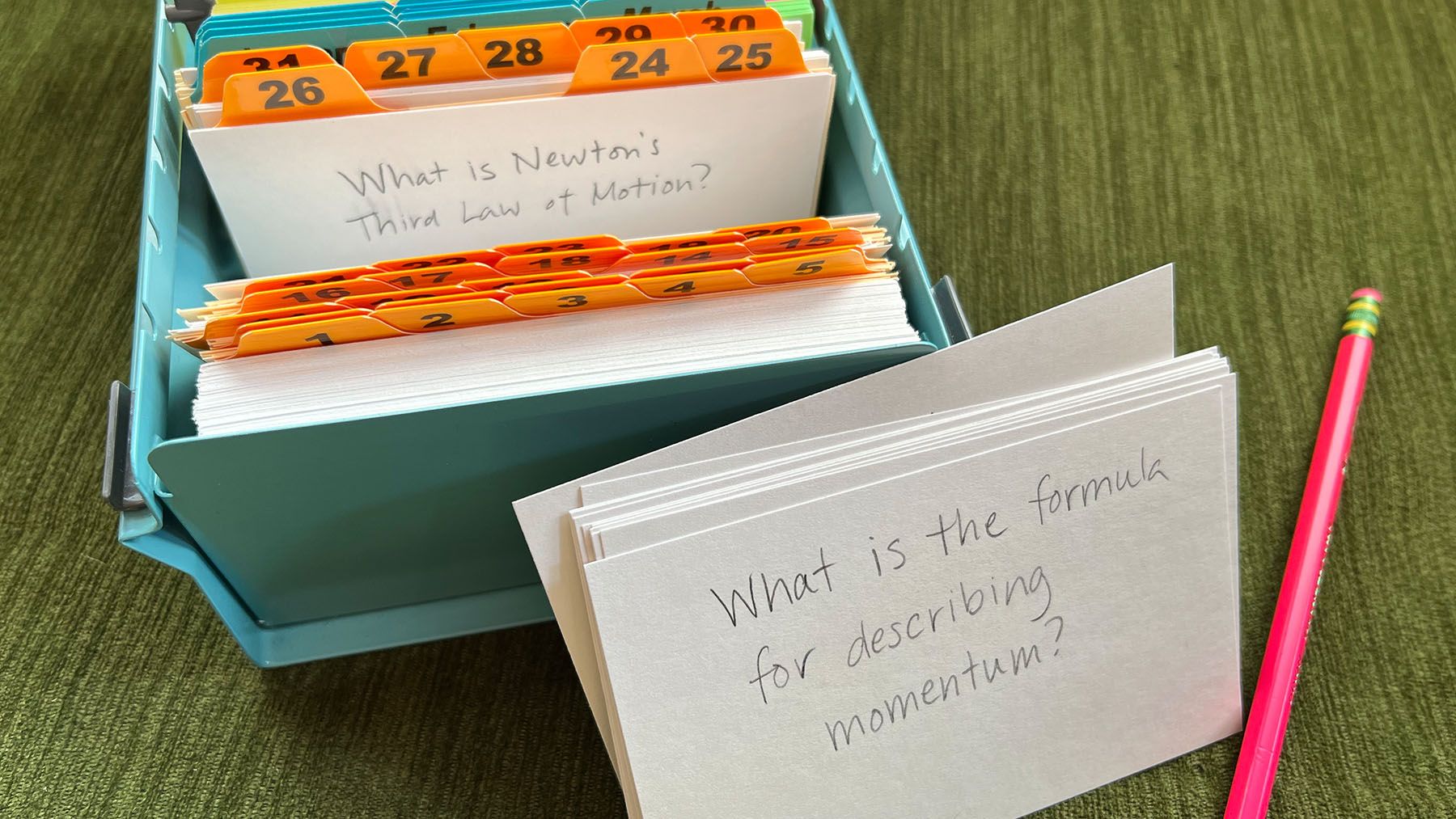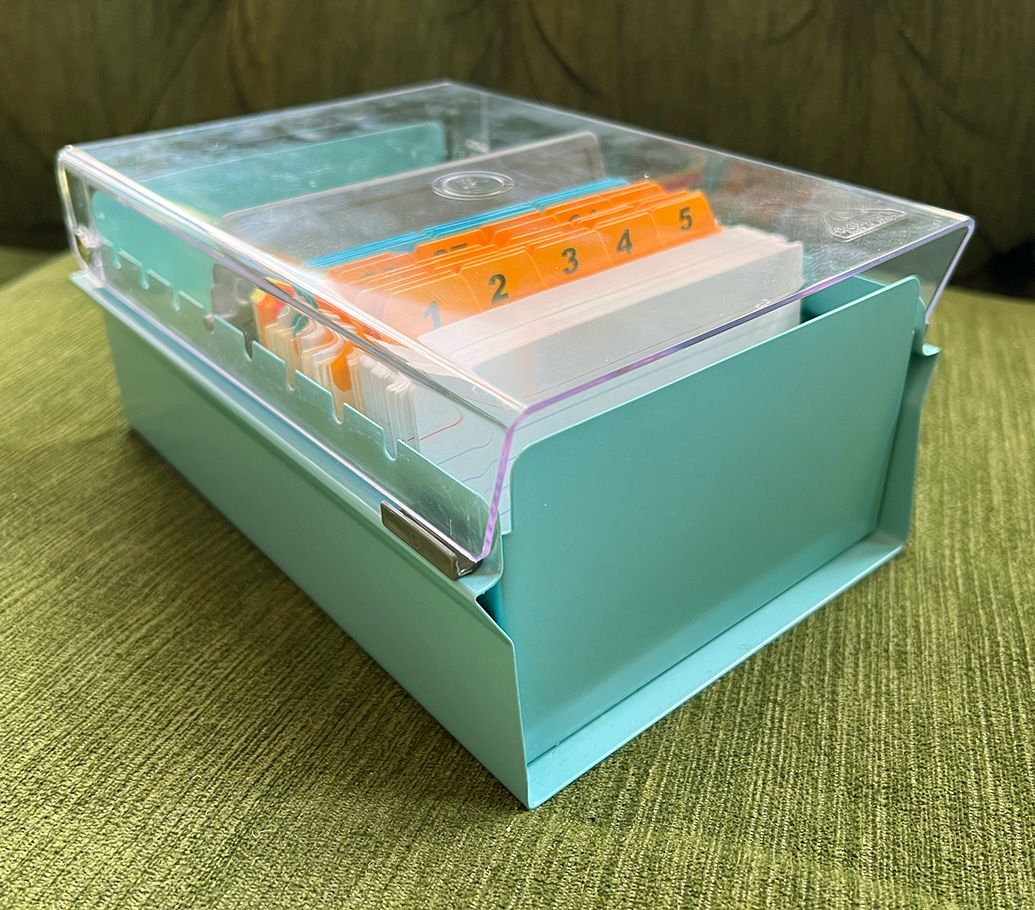Memory work with flash cards
I'm putting my anti-flash card stance on ice, because dangit, turns out they work. Also, they're easy.

Last week I posted about our fresh focus on retaining what we're learning. I identified the ways our various curricula have been a great support in this, but also where we had a hole: the areas where we aren't using a curriculum.
A quick recap from that post: one of the best ways to retain what we learn is to use the information (not review the information, but be prompted to recall and apply the information), spaced out a bit from when we learned it.
The main way I've been handling this kind of time-spaced memory work has been through writing activities (in the style of The Writing Revolution). That has been great, but I can't create writing activities for everything. It would be too much for her, and too much for me.
Enter: flash cards. Flash cards! Of all things! I never, ever liked flash cards. I didn't think they worked well for me, so I thought they were silly. I felt that, but that shouldn't be confused with knowing that. While we humans have evolved to have and trust those gut feelings for very good reasons, it's also important to be willing to keep an open mind and pay attention to what brain scientists have to say. So, I'm giving flash cards a chance.
And so far, I'm really glad I've been willing to change my mind about flash cards. They're so simple, so fast, so effective. It's given Wanda a confidence boost to see how much she's able to remember with just a smidge of extra work.

I'm following the flash card technique described in Andrew Campbell's Exploring the World through Story curriculum.
- Index cards
I'm using 3x5" index cards. I bought heavyweight ones from Oxford, as standard index cards these days are pretty flimsy. - Index card dividers
I have two divider sets, also from Oxford: one set tabbed 1-31 for the days of the month, and another set with tabs for the months of the year. - Index card box
Finding a good box was the hardest part—it was hard to find one that definitely had enough height to accommodate the tabs, and also almost all of the boxes I was finding were junky plastic. I love this one I found, from a Brazilian company, Acrimet. It's made of steel! And it has plenty of room to grow.
To create the flash cards, I write a question on one side, and the answer on the other. I try to write them so that the cards can also be reversed and used backwards, Jeopardy! style. For example, the card about Vishnu has, "Who is Vishnu?" on one side, and on the other side says, "The Hindu god of preservation." If I'd written the answer side as "Vishnu is the Hindu god of preservation" then it couldn't be used both directions, only one.
(Not sure what to include in your flash cards? Quidnam Press has a book called Living Memory that is a simple collection of here's-the-stuff-worth-memorizing. There's a free sample on the website.)
When a card is new to the rotation, we include it in every day's memory work, until it's clear her understanding is solid and recall comes easily, usually just a few days. Then I'll move the card to a date further out, maybe a few days, maybe a week. As it comes back through the rotation, I keep spacing it out farther, and also sometimes start using the cards backwards.
We only have a handful of cards to cover each day, and we whip through them in about 5 or 10 minutes. It's easy to fit into our day. It's been fantastic for exposing gaps, giving me a chance to change up how I have explained something, to spackle over those cracks and deepen her understanding.
It's been gratifying to see Wanda's confidence increase as her recall time decreases, and she loves the feeling when she can see how much stuff she's stuff down pat. She even asked for her own set of index cards and card box! Hers is purple.
Flash cards are simple and they work... but they're still pretty dry. In a few days, I'll post about another way I'm adding in some memory work that's much, much more fun.
Not clear on why all this memorizing is necessary? You can learn more by reading the books Why Don't Students Like School?, Make It Stick, or The Knowledge Gap. If you're interested but not that interested, you can start with my earlier blog post about the science of learning, or another earlier post with links to two great articles about designing lessons to optimize retention.

